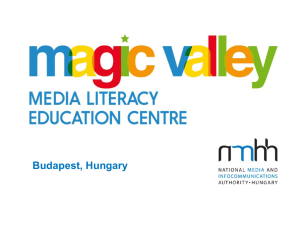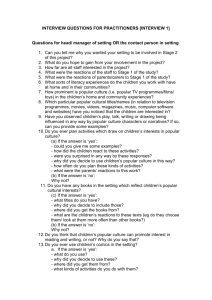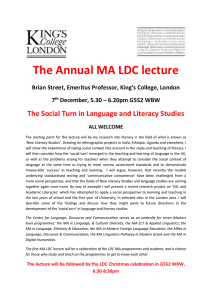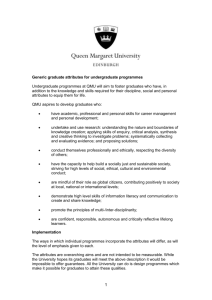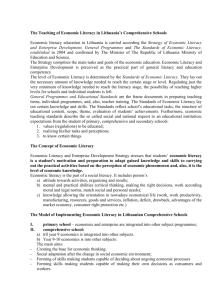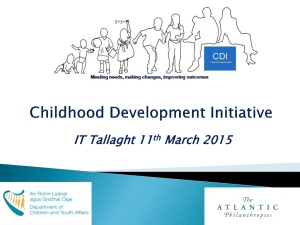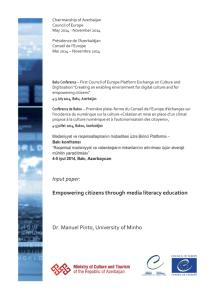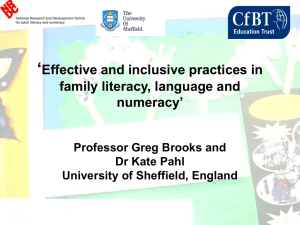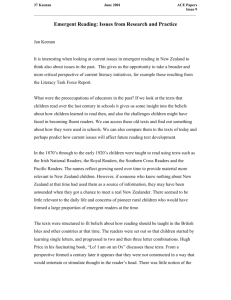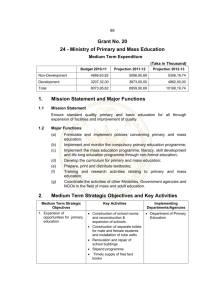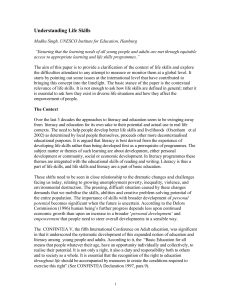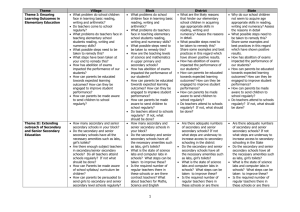Session 1 – 22nd 14
advertisement
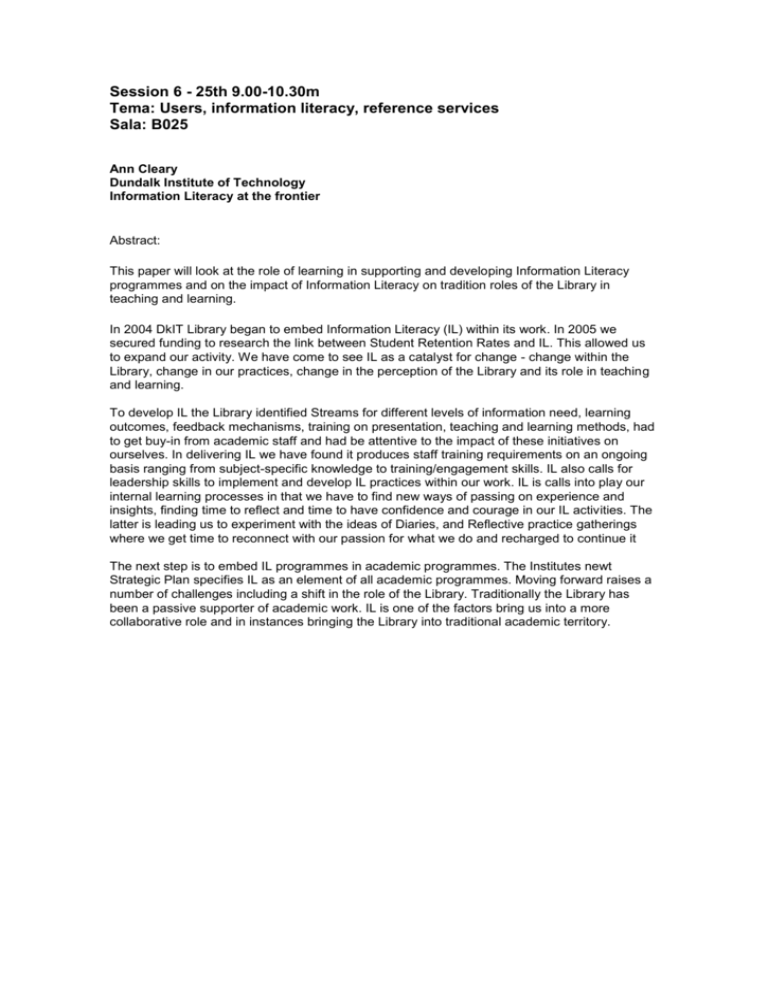
Session 6 - 25th 9.00-10.30m Tema: Users, information literacy, reference services Sala: B025 Ann Cleary Dundalk Institute of Technology Information Literacy at the frontier Abstract: This paper will look at the role of learning in supporting and developing Information Literacy programmes and on the impact of Information Literacy on tradition roles of the Library in teaching and learning. In 2004 DkIT Library began to embed Information Literacy (IL) within its work. In 2005 we secured funding to research the link between Student Retention Rates and IL. This allowed us to expand our activity. We have come to see IL as a catalyst for change - change within the Library, change in our practices, change in the perception of the Library and its role in teaching and learning. To develop IL the Library identified Streams for different levels of information need, learning outcomes, feedback mechanisms, training on presentation, teaching and learning methods, had to get buy-in from academic staff and had be attentive to the impact of these initiatives on ourselves. In delivering IL we have found it produces staff training requirements on an ongoing basis ranging from subject-specific knowledge to training/engagement skills. IL also calls for leadership skills to implement and develop IL practices within our work. IL is calls into play our internal learning processes in that we have to find new ways of passing on experience and insights, finding time to reflect and time to have confidence and courage in our IL activities. The latter is leading us to experiment with the ideas of Diaries, and Reflective practice gatherings where we get time to reconnect with our passion for what we do and recharged to continue it The next step is to embed IL programmes in academic programmes. The Institutes newt Strategic Plan specifies IL as an element of all academic programmes. Moving forward raises a number of challenges including a shift in the role of the Library. Traditionally the Library has been a passive supporter of academic work. IL is one of the factors bring us into a more collaborative role and in instances bringing the Library into traditional academic territory.
